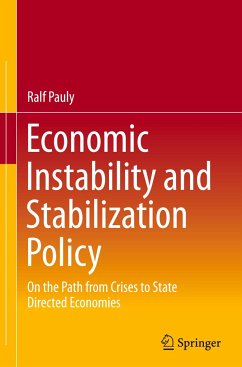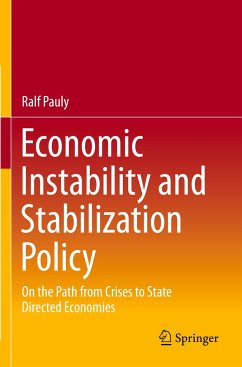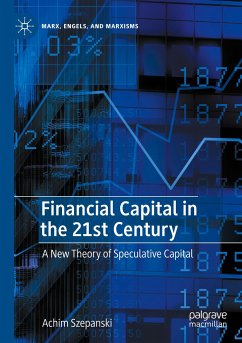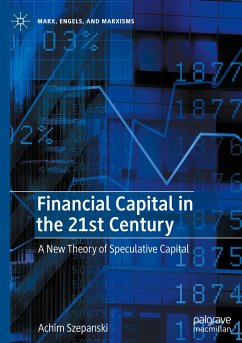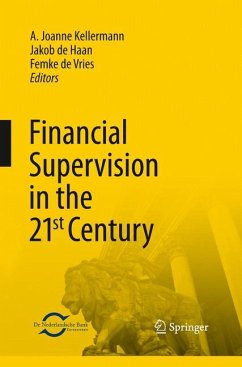
Financial Supervision in the 21st Century
Versandkostenfrei!
Versandfertig in 6-10 Tagen
76,99 €
inkl. MwSt.

PAYBACK Punkte
38 °P sammeln!
The financial crisis prompted financial supervisors to take a critical look at their own performance. The "toolkit" available to supervisors is considerably more varied than it was a few years ago. Supervision has become more forward-looking, taking into account also soft controls, such as 'conduct and culture', corporate governance, and business models of financial institutions. This collection of essays discusses several significant changes in supervision methods and supervisory organisations and examines what methods contribute to 'good supervision' and what can reasonably be expected of su...
The financial crisis prompted financial supervisors to take a critical look at their own performance. The "toolkit" available to supervisors is considerably more varied than it was a few years ago. Supervision has become more forward-looking, taking into account also soft controls, such as 'conduct and culture', corporate governance, and business models of financial institutions. This collection of essays discusses several significant changes in supervision methods and supervisory organisations and examines what methods contribute to 'good supervision' and what can reasonably be expected of supervisors. The authors are experts in the field and most of them are affiliated to organisations responsible for financial supervision.





